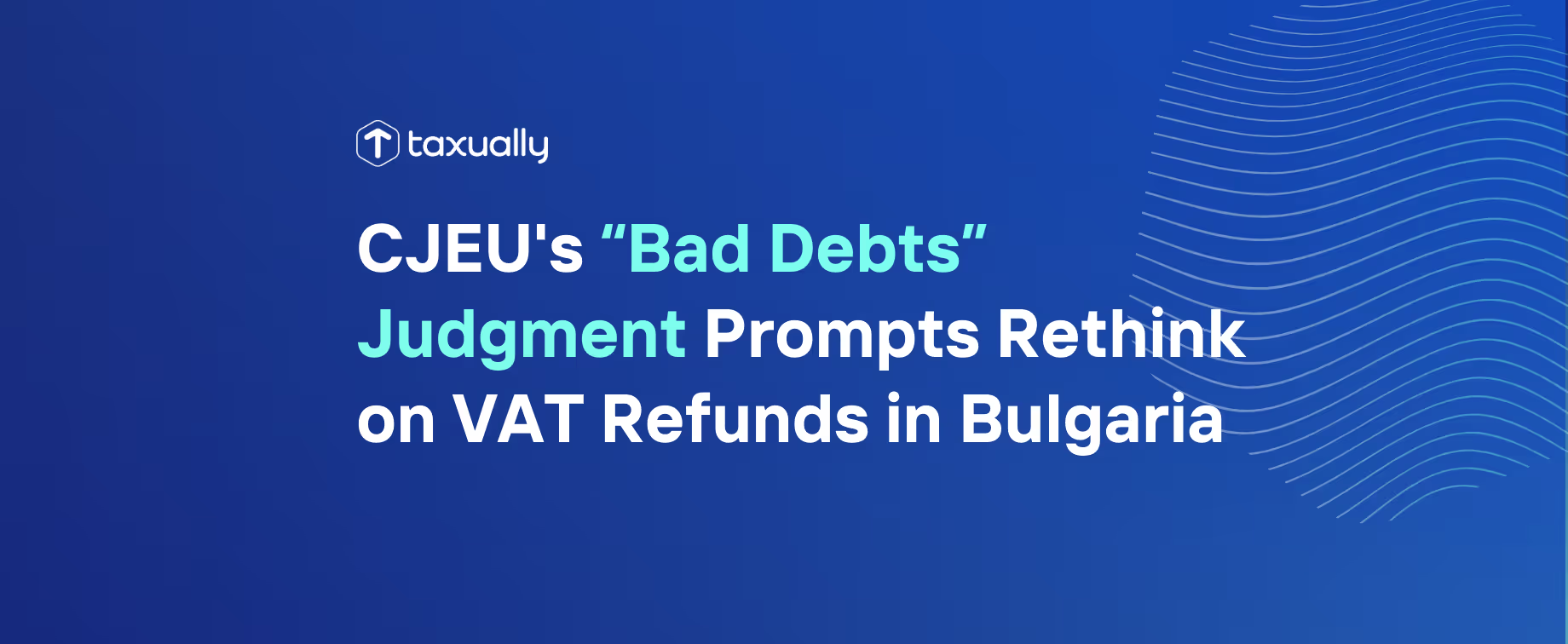Key takeaways
- On February 29 2024, the CJEU ruled that VAT refunds on bad debts in Bulgaria can be claimed without issuing a credit note or notifying the debtor.
- The decision affects refund claims for periods before 2023, broadening access to VAT recovery for suppliers with uncollected debts.
- Prior to the judgment, Bulgarian tax authorities frequently rejected refund claims due to strict procedural requirements.
- The ruling aligns Bulgaria’s VAT practice with EU law, ensuring fairer treatment for suppliers and potential state-compensation claims for past denials.
- Businesses should review historic bad-debt cases to identify possible refund opportunities.
On February 29, the Court of Justice of the European Union (CJEU) delivered a landmark judgment regarding VAT refunds on bad debts in Bulgaria, potentially reshaping VAT refund practices for periods before 2023. The 2024 CJEU judgment clarified that suppliers could adjust their tax base and claim VAT refunds on uncollected debts without having issued a credit note or notifying the debtor.
Background and legal developments
Previously, securing VAT refunds on "bad" debts could be challenging, both in Bulgaria and the wider EU. Until amendments in 2023 to Bulgaria’s VAT Act of 2006, the legal framework lacked clarity on handling VAT on uncollected payments. The landmark CJEU case from 2018 resulted in the amendment of the VAT Act, which now includes a mechanism for VAT refunds when the consideration for a supply is uncollected.
Before this, Bulgarian tax authorities and courts frequently rejected VAT refund claims on procedural grounds, like the absence of a credit note, creating barriers for suppliers.
Implications of the 2024 CJEU judgment
This judgment broadens the scope for claiming VAT refunds by not strictly requiring a credit note. This will open up refund opportunities for businesses previously denied on these grounds. The decision also has implications for ongoing tax disputes and unclaimed VAT refunds. It could lead to claims for state compensation by businesses negatively impacted by prior national decisions that imposed stringent conditions for VAT refunds, contrary to EU law.
Frequently asked questions
New Year's Day - 1/1/2024Memorial Day - 5/27/20244th of July - 7/4/2024Labor Day - 9/2/2024Thanksgiving Day - 11/28/2024Day after Thanksgiving - 11/29/2024Christmas Eve - 12/24/2024Christmas Day - 12/25/2024
What was the CJEU ruling about?
It clarified that suppliers can adjust their VAT base and claim refunds for uncollected debts without needing to issue a credit note or notify the debtor.
Why is this significant for Bulgaria?
It overturns restrictive national practices that previously blocked VAT refunds on procedural grounds.
Does the judgment apply retroactively?
Yes, it may affect claims for VAT periods prior to 2023, subject to statutory limitation periods.
What does this mean for ongoing tax disputes?
Pending or previously denied refund cases may now have grounds for reconsideration or appeal.
Can businesses seek compensation?
Potentially yes—if prior rejections caused financial loss due to conditions found contrary to EU law.
What should companies do next?
Review past bad-debt VAT filings, consult legal counsel, and consider reopening claims under the updated interpretation.
How does this align with EU principles?
It reinforces the EU principle of VAT neutrality and ensures uniform application of refund rights across Member States.



















